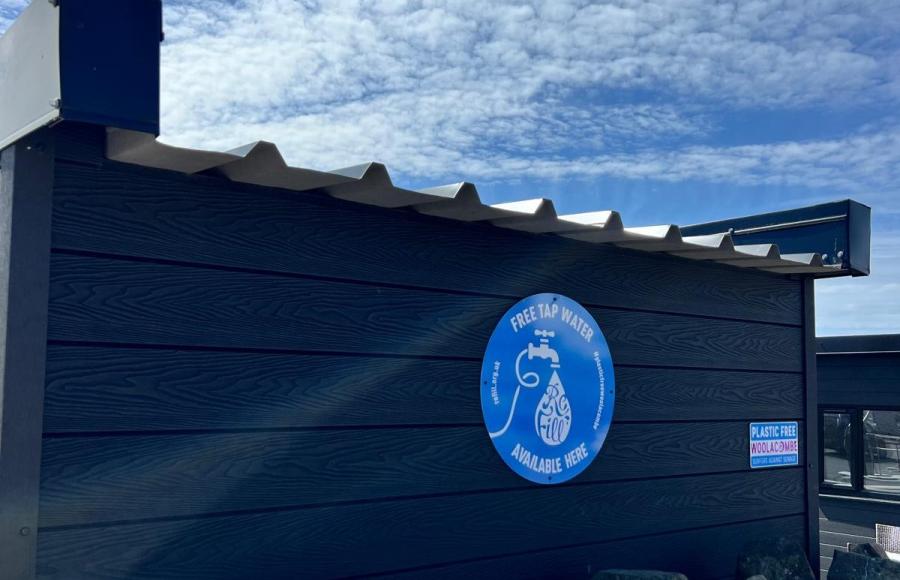
North Devon has become the 12th location from around the globe to be selected as a World Surfing Reserve, an international designation that recognises and celebrates the area’s outstanding quality surfing beaches and brings together the local community and experts in actions to protect them. The area has been recognised not only for its high quality and diversity of surf breaks, but also for the unique natural beauty of its surroundings, its deep-rooted and historic surf culture, and its importance to the wider community.
North Devon joins an exclusive list of World Surfing Reserves that includes Malibu and Santa Cruz in California, Ericeira in Portugal, the Gold Coast, Manly and Noosa in Australia, Punta de Lobos in Chile, Huanchaco in Peru, Guarda do Embau in Brazil, and Bahia de Todos Santos in Mexico.
Adam Hall, a local surfer and co-founder of the Surfing Reserve in North Devon, says: “Our core focus is looking after the quality of the waves themselves and preserving the ecosystems that produce them. Surf spots need to be celebrated, recognised and protected in the same way we protect and recognise beautiful national parks like Exmoor.”
The World Surfing Reserves (WSR) program was launched in 2009 by California-based Save the Waves Coalition, an international non-governmental organisation dedicated to protecting surf ecosystems around the globe. This pioneering model has met with proven success.
In recognising North Devon, Nik Strong-Cvetich of Save The Waves said “We are delighted to welcome North Devon as a World Surfing Reserve alongside other iconic protected surfing locations around the world. We hope this designation helps give a greater voice to surfers in decisions that will impact the beautiful coastline in North Devon and protect such a diverse range of waves”.
Each Reserve establishes a Local Stewardship Council to design a plan of action - "Stewardship Plan" - which aims to improve the conservation of the coastline and waves. In North Devon the group includes local organisations such as the North Devon UNESCO Biosphere and Area of Outstanding Natural Beauty (AONB), environmental groups like Surfers Against Sewage, local community groups, surf clubs, local beach businesses and landowners, all coming together to work towards agreed goals and shared ideals. For the first time the local surfing and beach-going communities will have a voice in decision-making processes that affect the North Devon coastline.
The group is informed by scientific research and includes coastal experts from the University of Plymouth, including Dr Christopher Stokes who says: “Myself and the whole team at University of Plymouth are extremely proud to be part of the UK’s first World Surfing Reserve. It represents a real opportunity to celebrate the unique waves and surfing environment in North Devon, and importantly, to introduce measures that will protect our precious surf breaks using scientific research to help us identify threats to wave and water quality, as well as enhance the abundant natural capital of the region”
The aim is to protect waves and the surfing experience from threats such as harmful coastal development, water quality and pollution, limited coastal access, the impacts of climate change, and a host of other factors that directly or indirectly impact the delicate ecosystems on which waves of quality depend.
The North Devon World Surfing Reserve covers a world-class surf zone stretching across approximately 30 km of coastline. Its high density of outstanding surf, at iconic breaks such as Croyde, Saunton, Woolacombe, and Lynmouth, caters to wave-riders from beginner to expert and a variety of surfing styles. Here can be found gentle peeling waves on vast sandy beaches; fast and powerful peaks best suited to a dynamic, high-performance approach; and long and tapering walls that invite creative lines and end in tired legs.
The Reserve is the first of its kind in the UK, and only the second in Europe. It is also the first ever cold water World Surfing Reserve, with many of the best waves arriving in the winter season. It’s the organisers’ intention that the successful implementation of this model in North Devon could be replicated by other coastal areas of the UK to protect their own waves and beaches, and ultimately to achieve a Surfing Reserve status too.
On the Surfing Reserve’s organising committee is Yvette Curtis, who founded the Wave Wahines surf and fitness club, which provides affordable and accessible surf training to women and girls. Always seeking to open up the conversation and break down barriers to entry, Curtis stresses the wide reach of the program’s many potential benefits: “Whether you are a surfer or a wild swimmer, surf lifesaver, stand-up paddle boarder, or just enjoying a walk along the wild coastal path, this beautiful, raw and rugged coastline intertwined with world-class surfing and waves has something for everyone. We need to protect what we love.”
North Devon is a well-established hub of surf culture, home to the Museum of British Surfing, the sport’s national governing body Surfing England, and to brands such as Dry Robe and Tiki, all located in Braunton within easy access of the best beaches. A study in 2008 estimated that surfing brought in over £50 million to the area every year, and sustained around 1500 jobs.
Kevin “Cookie” Cook has been surfing in North Devon for more than 50 years, having made his first surfboard in 1968 while still at school. It was Cookie who first proposed applying the Surfing Reserve concept to North Devon: “It is so important to celebrate the amazing, special and unique surfing environment of North Devon in a way that will protect it and ensure future generations are able to experience the magic and beauty of being at one with the ocean.”
The North Devon community relies on a thriving and functioning surf ecosystem for a wide range of healthy and productive activities, Rob Whitney a local teacher who has been involved in the Reserves development for numerous years understands the importance of this very ecosystem to the local and visiting youth “We have a wealth of expertise and experience within our Local Stewardship Council, but it is also our responsibility to educate future generations and inspire them to protect what makes this area special and unique, whilst demonstrating that everyday people can make a difference”
Ben Hewitt, a local surfer and former chair of the campaign group Surfers Against Sewage, has been helping the Reserve to develop its Stewardship Plan and establish a framework for safeguarding these miracles of nature against unilateral or short-sighted interventions. He says “There are too many cases around the world when a decision to dredge a sandbar or build a coastal development has destroyed a perfect wave forever or ruined the surfing experience. In preparing the Reserve we have worked with coastal scientists to understand why the different types of waves break the way they do and what factors need to be taken into account when protecting this unique coastline. ”


